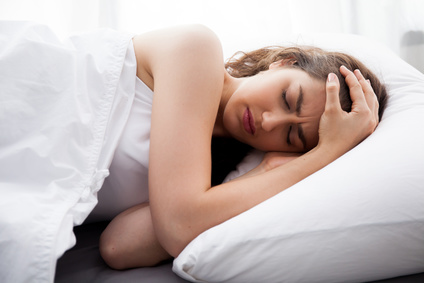📚Do You Need a Sleep Study?
 Experiencing trouble falling asleep, waking up frequently during the night, or feeling tired after waking up could be indicators that a sleep study might be beneficial for you. Achieving quality sleep each night is vital for allowing your body and mind to recuperate, mend, and get ready for the coming day. However, when sleep issues arise, they can significantly impact your daily life.
Experiencing trouble falling asleep, waking up frequently during the night, or feeling tired after waking up could be indicators that a sleep study might be beneficial for you. Achieving quality sleep each night is vital for allowing your body and mind to recuperate, mend, and get ready for the coming day. However, when sleep issues arise, they can significantly impact your daily life.
If you are struggling and trying the usual methods to improve your sleep, but finding that they don’t work, seeking further help will assist you in figuring out what’s going wrong and provide you with ways to solve the issue. In this article, we will be looking at the steps you can take yourself to improve sleep as well as explaining what is involved in a sleep test and how this can be of use.
What is a Sleep Study?
Sleep studies, also known as polysomnography, are non-invasive overnight exams where you are monitored as you sleep to help professionals diagnose any sleep disorders you may have. It will typically involve spending a night at a clinic where you will have your own room that is monitored by cameras, and be connected to a series of diagnostic tools to measure your blood pressure, heart rate, and brain activity.
If for example, you have a condition like sleep apnea, insomnia, or narcolepsy, then a sleep study will identify this whereas a simple visit to the doctor during the day wouldn’t be able to.
What can be Monitored During a Sleep Test?
Sleep studies give doctors a chance to monitor a series of different factors to understand what is going on as you sleep. You won’t necessarily have all of these during your first time, but the types of tests that can be involved include:
- An EEG scan that monitors your brain activity
- An ECG scan that monitors your heart activity
- Measurements of airflow through your nose and mouth
- An EOG scan that monitors your eye movement
- An EMG scan that monitors your muscle activity
- Measurements of your blood oxygen content
- Observation of leg movements
- Observation of your body position
- Observation of your levels of snoring and other sounds (including talking)
- Observation of your body movements (such as sleep walking)
The Types of Sleep Studies
A number of different types of sleep studies can be carried out depending on the particular problems that need to be investigated. The following are ones often used, but this shouldn’t be seen as a categorical list as your doctor may decide to tailor one to your specific needs.
Overnight Diagnostic Study
This is the type of sleep test that is used the most, and will require you to spend the night at a clinic. Sensors will be attached to you to monitor all of the different factors mentioned earlier as well as using infrared cameras to monitor your movements. This can all lead to diagnoses of conditions related to snoring, sleep apnea, limb movement disorders, insomnia, narcolepsy, and many others.
Usually, you will only be required to do this over one night, but for conditions that only affect you occasionally, you may need to do this a number of times to effectively monitor the issues you are facing.
Daytime Diagnostic Study
These studies are similar to the nighttime ones but are performed during the day for people who usually sleep during the daytime.
CPAP Titration Study
CPAP (which stands for Continuous airway pressure study) is a treatment for obstructive sleeping disorders, so this type of study is used to determine the pressures that will be required.
BPAP and APAP Titrations Study
These are similar to the CPAP studies and are used to determine the pressures and treatments needed to help with extreme snoring and obstructive respiratory issues.
Multiple Sleep Latency Test
This test is used when there is a suspicion of narcolepsy and takes place during the day after night time observation. It involves a number of short nap periods during the day during which the brain waves and eye movements are monitored to establish which sleep stages are being transitioned through.
Maintenance of Wakefulness Test
This is used to find out how able someone is to remain awake during the day to see how well they are responding to sleep therapy or to establish how safe it will be for them to drive or operate dangerous machinery. There are four test periods during the day through which the patient is required to stay awake while their brainwaves and eye movements are being monitored.
EEG’s
The EEG monitors brain activity and sometimes will be the only diagnostic tool used. This can be used to understand problems like nighttime epilepsy and nocturnal seizures.
Here’s a video that will help to explain further:
What is the Cost of a Sleep Study?
As a medical diagnostic tool, sleep studies will cost varying amounts that depend on what is required and what the medics are trying to look at. The price will also depend on what you have covered with medical insurance and the facility where you are going for the test, so we are only providing a general guide here (not including costs covered by insurance).
In general, in the United States, a standard overnight sleep test will cost between $600 and $5000 per night. The more complicated the study needs to be, the higher the final price will end up being. Some facilities, such as the one at Stanford University, can cost up to $7,500 per night. It is also possible to have some of the tests performed at home instead, in which case the cost will be below $500, but this won’t be as comprehensive as if you are at a clinic.
Ideal Conditions for Sleeping
We need to sleep each night and, while it’s possible to sleep in uncomfortable or distracting environments, it’s not ideal and won’t leave you feeling great afterwards. To maximize the efficiency of your time asleep you should create the perfect conditions in your bedroom- something that often will help to eliminate any sleeping problems you are experiencing.
If you think you might suffer from a sleep disorder, try improving your sleeping conditions first to see if it changes anything. Of course, if you’ve already tried this you should contact your doctor. The key things to be aware of and improve are:
Comfort
You need to sleep in a bed as comfortable as possible. This means having a supportive mattress and pillows that keep your spine and neck in alignment with each other. It is also helpful to have plenty of pillows and covers to support your preferred position while you are sleeping, such as between your legs when you sleep on your side to prevent unnecessary pressures being exerted on your back.
Distractions
Distractions are one of the biggest causes of troublesome sleep, so it’s worth spending some time to eliminate these from the area. Things like unpredictable lights and sounds are the worst offenders for this, and it’s not necessarily so easy to prevent their impact. If needs be you should try wearing a sleeping mask, ear plugs, or try using a white noise machine to minimize these effects.
Cell phones and tablets are common causes of sleeping issues because of the blue light they emit. It’s worth trying to not use them within an hour of going to bed and keeping them face downwards if they are in the bedroom. You might just find that this solves a lot of issues with relaxing and switching off at night.
Daily Routine
Your body works best when it is able to keep to a regular routine, so the more you can keep to this, the better you will find your sleep cycles to be. Ideally, you should be getting at least 8 hours of sleep per night, and should be going to bed and waking up at the same time each day. This may prove tricky to keep to at first, but if you keep at it you will find that your body adapts within a few days.
It’s also important to think about what you ingest into your body before you go to sleep, because things like caffeine, alcohol, nicotine, and even a large meal can serve to prevent you from falling asleep properly.
If you have worked on each of these points, but are still experiencing issues with the way you sleep, it is worth visiting your doctor and exploring the opportunities of a sleep test.
The Final Word
Struggling to sleep, or finding that you are still tired once you wake up, can be a worrying and stressful experience, but quite often this happens as a result of lifestyle choices and the lack of a regular routine. If you have tried all of the usual recommendations of how to get a better night’s sleep and are still experiencing difficulties, then it may be a sign that you have a sleeping disorder.
Having a sleep study will be able to confirm if this is the case or not, and once a diagnosis has been made there will be a course of treatment you can undergo that will help fix the problem once and for all.





